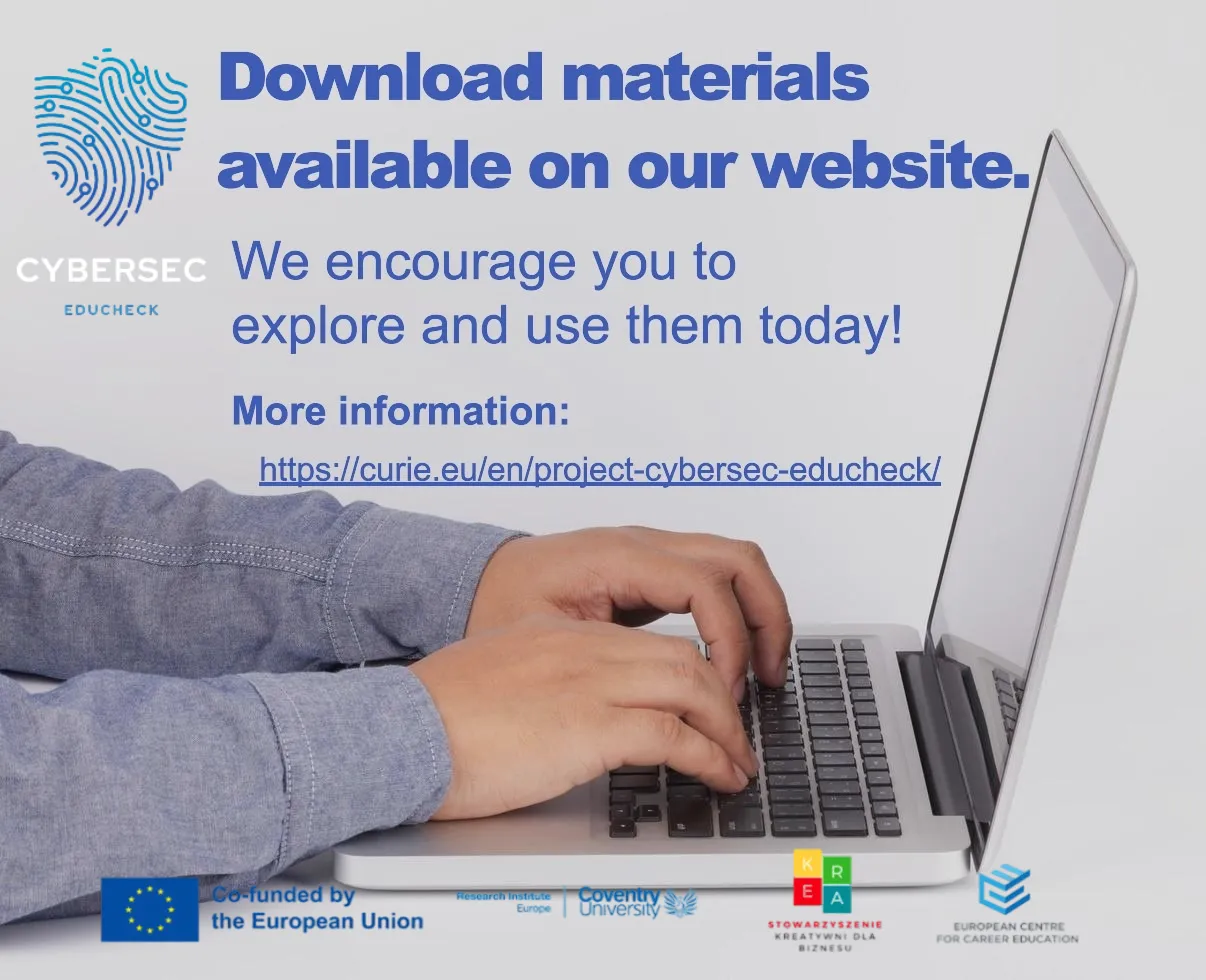Cyber resilience at school: experiences & ideas for the future
Above all, it is about awareness, critical thinking, and continuous education—this was the key takeaway from the conference "Cyber resilience at school – experiences and ideas for the future", organized as part of the “CyberSec EducCheck” project, which took place on January 30, 2025, in Wrocław, at the Coventry University Wrocław campus. The event brought together experts, teachers, and practitioners involved in cybersecurity in education. The conference aimed to share experiences, summarize the project's findings, exchange knowledge, and develop future strategies.

Key Takeaways from the Conference
Experts emphasized how rapidly online threats are evolving and the crucial role of digital education. Here are the key insights that emerged from the discussions:
- Deepfake—A New Challenge for PrivacyArtificial intelligence enables the rapid creation of fake images and recordings, posing an increasing threat to privacy. Borys Lacki's examples sparked a lively discussion on how to combat disinformation.
- Creative Thinking as a Component of Critical Thinking—Lesson ScenariosWeronika Kędzierska (Coventry University Research Institute Europe) discussed how to foster students' creativity in digital education and how lesson scenarios can be implemented to support critical thinking.
- Building a Culture of Cybersecurity in SchoolsMateusz Pękala (Coventry University Research Institute Europe) highlighted the role of teachers in shaping a cybersecurity culture. It pointed out best practices in digital education.
- Youth Cybersecurity in Social Media Jakub Osmani (CATO Networks, Czech Republic) presented the latest threats related to social media and ways in which young people can protect themselves.
- Threats in Education in the Age of AI – Legal and Technological Challenges: Experts from SDZ Legal, Antologiq, and LogicalTrust discussed the legal and technological aspects of artificial intelligence in education and its impact on student safety.
- Incidents in Schools – More Cases or Greater Awareness? Each year, the number of reported cyberattacks in educational institutions increases. Does this indicate a real rise in threats, or is it a sign of growing awareness of how to respond to them? Piotr Wyszumirski addressed this topic, emphasizing the importance of security procedures and legal education.
- The Evolution of Cyberattacks – New Tools, Same PatternsFraudsters’ methods evolve with technological advancements and social media, but their schemes remain largely the same. Jakub Osmani (CATO Networks, Czech Republic) stressed the need to track trends and teach students how to recognize threats.
- Social Perspective and Local InitiativesA significant aspect of the conference was the practical perspective—Martyna Wilk (Wrocław Social Development Center) presented how local social initiatives in Wrocław can help build cyber resilience.

Critical Thinking as the Key to Cybersecurity
The most frequently repeated conclusion was that critical thinking is the key competency in the digital world. It enables individuals to analyze information, identify threats, and make informed decisions. Digital education is about transferring knowledge and developing independent thinking, creativity, and the ability to adapt to a constantly changing world.
The conference was part of Project No. 2023-2-PL01-KA210-VET-000176822, implemented under KA210-VET - Small-Scale Partnerships in the Vocational Education and Training (VET) sector.
PROJECT LEADER:
Coventry University Research Institute Europe
PARTNERS:
- European Centre for Career Education (ECCEDU)
- Stowarzyszenie Kreatywni dla biznesu
- CATO Networks (Czech Republic)
- SDZ Legal
- Antologic
- LogicalTrust
- Wrocławskie Centrum Rozwoju Społecznego

We encourage you to explore the materials developed as part of the project:
https://curie.eu/cybersec-educheck/

___________________________
Funded by the European Union. The views and opinions expressed are solely those of the author(s) and do not necessarily reflect the views and opinions of the European Union or the European Education and Culture Executive Agency (EACEA). Neither the European Union nor EACEA can be held responsible for them.
All results developed within this project are made available under open licenses (CC BY-NC 4.0). They can be used freely and without restrictions. However, copying or modifying these materials, in whole or in part, without the author's permission is prohibited. When using the project results, it is necessary to provide the source of funding and acknowledge the authors.





